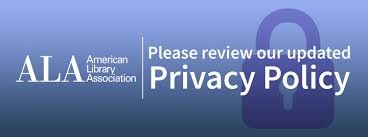American Library Association Committee on Accreditation (ALA)
American Library Association Committee on Accreditation (ALA) accredits institutions that offer masters programs in library and information studies and support careers in this field. For more insights, read ahead.
A librarian is a professional who is concerned with monitoring the day-to-day activities of the library services.
The roles include maintaining the cataloging system in the library, lending books to the customer, providing customer services, research, instructions, technical services, and other administrative tasks.
What is the American Library Association (ALA)?
The American Library Association (ALA) is a nonprofit organization based in the United States that promotes libraries and library education internationally.
ALA is one of the oldest and legendary library associations in the world. Founded on October 6, 1876, it focusses on the rigorous evaluation and development of the library and information studies standards.
The main mission of this association is to upgrade learning and access to information for all.
To achieve the mission, the ALA created the Board of Education for Librarianship to carry on the accreditation of programs of education for librarianship. In the year 1956, the Board became the Committee on Accreditation (COA).

source - ala.org
Which programs are accredited?
The American Library Association (ALA) provides accreditation for Master’s degree programs in Library and Information Studies across the United States, Canada, and Puerto Rico.
These programs are evaluated to ensure that they meet the Standards for Accreditation of Master’s Programs in Library and Information Studies.
The ALA Committee on Accreditation is recognized by CHEA and strives towards assuring quality, innovation, and value in library and information studies education.

source - Unsplash.com
Eligibility requirements for ALA accreditation
The ALA accredits only those library and information studies programs that comply with the standards established by the council. The institution must follow the rules and criteria that are laid by the committee.

source - pexels.com
The following are the eligibility requirements for receiving ALA accreditation -
-
The institution must be located in the U.S. and neighboring territories and offer a comprehensive master's program in library and information studies
-
The institution must have received accreditation from the designated regional accrediting agency. This is not mandatory for institutions in Canada as it does not have any regional accrediting system
-
The educational standards must be following rules that are laid by the committee
-
To receive initial accreditation from the ALA, pre-candidate programs are required to apply for candidacy status
-
A perpetual full-time Dean must be set up for the program to concede nomination status
-
A letter from the director of the foundation asking for nomination status for the establishment ought to be sent to the office
-
A letter sent from the dignitary of the program/school in which the organization is situated requesting for application status.
What is the process for ALA accreditation?
ALA provides accreditation to only those programs that impart expected quality education through their programs. It should be understood that policies drive process and that procedures are steps in the process.
The process of accreditation can be summarized as follows -
-
For initial accreditation, the institutions are required to submit a self-study of the program to be accredited while filling the online application
-
Based on the self-study, a site visit is scheduled
-
The unit must pay all the expenses related to the visit and review
-
The external review team along with the committee visits the site to verify the standards
-
The candidate status is given based on the result of the site visit and peer review
-
Continuous evaluation and assessment are done to maintain accreditation status
Benefits of ALA Accreditation
Accreditation is achieved through a review process conducted by an external review panel of practitioners and academics that verifies the program. Graduating from an ALA-accredited program provides flexibility in the types of libraries and jobs you can apply for and enhances career mobility.
Why should accreditation matter to you? Read on to find out.
-
Studying in an ALA-accredited program can be very beneficial. Some of the main benefits that you will receive are given
-
Flexibility in the types of libraries you can work for or the variety of library jobs you can apply for
-
Acquiring a degree from ALA-accredited programs enhances career mobility
-
Many employers are looking to hire professionals having an ALA-accredited masters degree
-
Many states require an ALA-accredited degree for pursuing a profession as a librarian or higher professional information studies.

source - Pexels.com
Guiding values of ALA-CoA
ALA-CoA was established to raise the standards of education in library and information studies. These values reflect the history and ongoing development of the profession and have been advanced, expanded, and refined by numerous policy statements of the American Library Association.
To achieve the objective, the committee stands on certain principles and values, some of which are listed below.
-
Enhance the quality of library and information services
-
Improve the professional education available for librarians and related information professionals
-
Constructive and continual assessment of LIS educational programs
-
Working for the interests of the members of the profession

source - ala.org
List of Universities under ALA Accreditation
At present, there are 65 programs at 60 institutions accredited by ALA in the United States, Canada, and Puerto Rico. These programs offer degrees with names such as Master of Library Science (MLS), Master of Arts, Master of Librarianship, Master of Library and Information Studies (MLIS), and Master of Science.
Here is a list of some of the colleges and universities accredited by ALA.
|
Universities accredited by ALA |
|
What are the entry requirements for an ALA-accredited program?
All institutions rendering ALA-accredited programs require you to have a bachelor's degree from an accredited institution. Many universities also require you to submit a GRE score or other standardized test scores.
The specific requirements depend on the programs you are interested in.
Conclusion
American Library Association Committee on Accreditation is an agency that provides accreditation for institutions providing master's degree programs in library and information studies.
It has been constantly working towards raising educational quality and developing standards for programs.
This has led to better career aspects and professionalism in the field of librarianship and related studies.
You may be interested in -
Frequently Asked Questions
1.What programs are accredited by ALA?
ALA accredits 65 programs at 60 institutions in the United States, Canada, and Puerto Rico offering a Master's degree in Library and Information Studies.
2.What is the appropriate degree to be a professional librarian?
Securing a Master's degree from an ALA-accredited institution makes you eligible to be a professional librarian.
3.What are the requirements to enter an ALA-accredited program?
Entry level requirements include a Bachelor's degree from an accredited institution and a decent GRE score. Specific requirements may vary from one program to another.
4.Is the American Library Association Committee on Accreditation recognized by CHEA?
Yes, the Council for Higher Education Accreditation or the CHEA recognizes the ALA committee on accreditation.
5.How do I volunteer to serve on an accreditation review team?
Submit the External Review Panel member information form along with your resume. Once you are a member of the pool review team, it will take you around two years to become a member of the panel.
6.Is a degree from a foreign institution equivalent to an ALA-accredited Master's? program
It is completely your choice whether you want to accept a degree from a foreign institution to be equivalent to an ALA-accredited program or not.